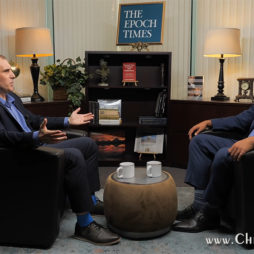 by Chris Banescu –
by Chris Banescu –
This is an interesting perspective from veteran entrepreneur and Inc. magazine columnist Norm Brodsky. Most entrepreneurs are independent, visionary, and courageous spirits driven to work had and achieve success regardless of personal sacrifices and risks. However, there are situations in which no matter how hard we work we may need to throw in the towel and chose to pursue a different venture or path; while still taking away critical lessons and experiences that can be invaluable.
Passion, vision, and drive are important attributes of all entrepreneurs, but so is pragmatism. Sometimes walking away from an unprofitable business or problematic venture is the best solution in the greater scheme of things. Luckily, the lessons learned and knowledge gained from such situations will be useful in future business or other entrepreneurial endeavors.
![]()
When Is It Time to Throw in the Towel?
by Norm Brodsky
Giving up isn’t something that comes easy to entrepreneurs, but sometimes, giving up might just be the best move.
Giving up isn’t something that comes easily to entrepreneurs. We’re stubborn and incurably optimistic. But sometimes, throwing in the towel might be precisely the right move.
I recently spent a long time talking to my friend Tom, who has been struggling for several years with his business. On the positive side, he puts out products that customers love, and his company has had a great impact on its community. Unfortunately, he’s running a for-profit business, not a charity. Three years ago, he expected the company to break even for the first time. Instead, he lost $250,000. The following year, he had the same expectation—and the same result. This past year, he projected a loss of $70,000 and lost more than $200,000.
Now, once again, he is projecting a breakeven year. I wish him nothing but the best, but I can’t help asking whether he should continue. I faced a similar dilemma when my messenger company, Perfect Courier, went into Chapter 11 in 1988. Some very smart people, including my lawyer and my accountants, told me I should walk away, arguing that it was highly unlikely I’d ever make it out of Chapter 11. My response: “What a great challenge!”
For the next three years, all I did was try to survive Chapter 11. It was torture. Can you imagine going to meetings every day where people yell at you and make threats? Yet, as painful as the ordeal was, it taught me more about business than anything else I’ve ever been through. The lessons I learned—focus on profit, not sales; leave managing to managers; don’t make hasty decisions; and so on—turned out to be great ones. By the time Perfect Courier emerged from Chapter 11 in 1991, I had already launched my next business, CitiStorage. Without those lessons, it would not have been nearly as successful as it was.
Was keeping Perfect Courier alive worth the price? Even in retrospect, I’m not sure—just as Tom can’t be sure. It’s tough to walk away when you’ve developed emotional ties to a business, as I had with Perfect Courier and as Tom has with his company. In the end, you just have to seek the best advice available, then use your best judgment. No two people will come to the same conclusion.
HT: Inc.com



